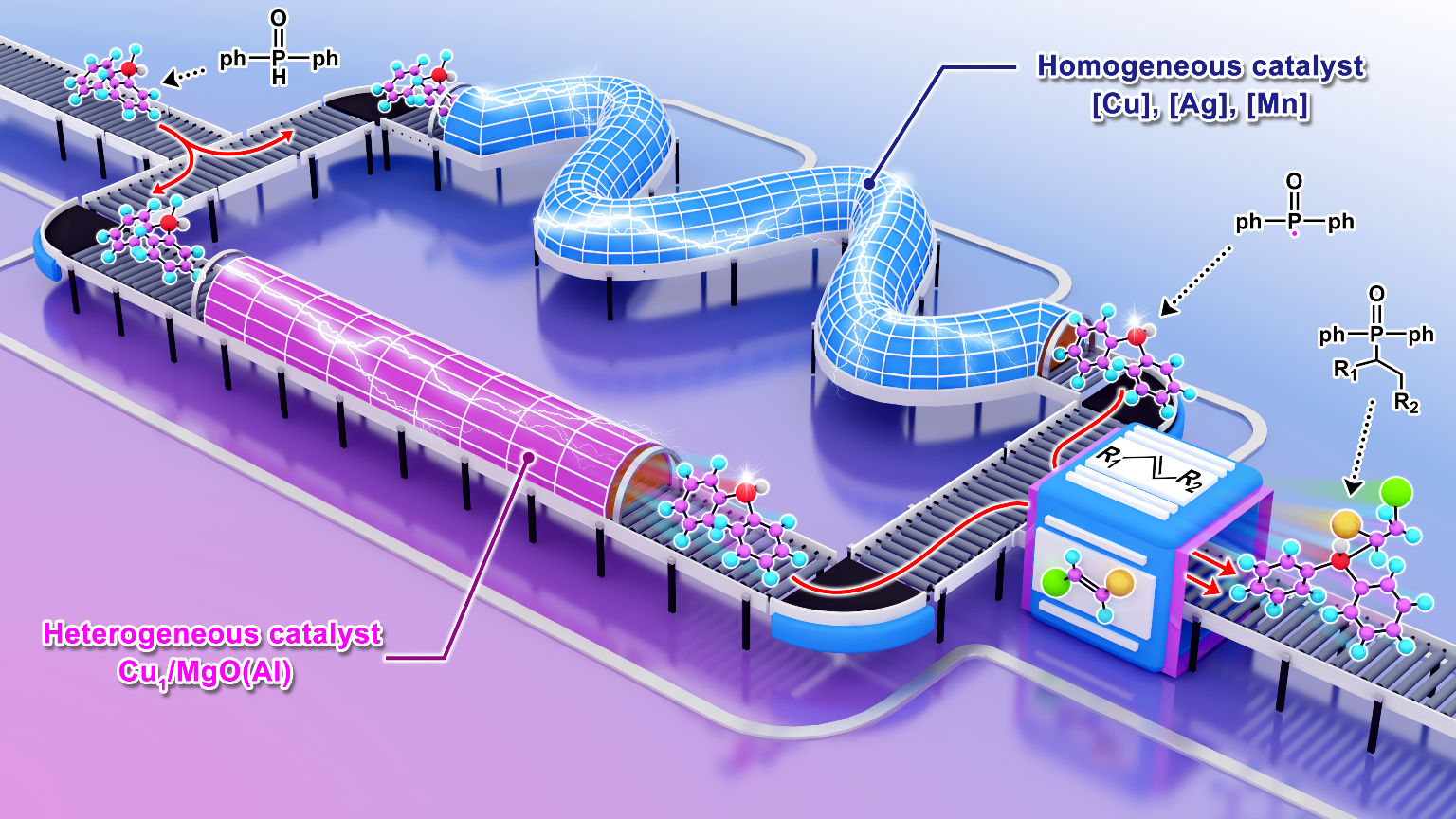Current position: Jian Zhang's Group > Scientific Research
Scientific Research
Research Field
Thermocatalytic and electrocatalytic heterogenization of homogeneous reactions

As the core of contemporary fine chemical industry, organic synthetic chemistry plays an important role in the development of materials science, pesticide science and pharmaceutical science. Thermocatalytic and electrocatalytic technologies are currently the main technologies to achieve efficient organic reactions, and the widely used homogeneous catalysts in these technologies suffer from the hard separation and recovery. The use of heterogeneous catalysts to achieve the heterogenization of organic reactions can effectively reduce production costs and product purification difficulties, which is considered to meet the requirements of modern fine chemical production and green chemistry. Our group has been focusing on the development of heterogeneous catalysts with performance comparable to that of homogeneous catalysts to achieve efficient thermocatalytic and electrocatalytic organic reactions.
Supported single-atom, cluster and nano catalysts

Transition-metal-catalysis is the main catalytic system for organic reactions, and supported metal catalysts are the key technique to realize heterogeneous transition-metal-catalysis. They anchor the active metal component on inorganic carriers, which retains the performance of transition-metal-catalysis to a certain extent while obtaining the advantages of easy separation and recycling. Among these catalysts, they can be classified into single-atom, cluster and nano catalysts depending on the dispersion of metal components, which can show discrepant catalytic properties due to the size distribution effect of metal components, thus adapting to organic reactions with different characteristics. Our group has devoted great efforts to the precise synthesis of uniform single-atom, cluster and nano catalysts on inorganic carriers and the development of strategies to optimize their catalytic performance.
Paper Publications
more+- [1] Qinying Zhao+, Xudong Zhao+, Zhiyi Liu+, Yi Ge, Jiaxiong Ruan, Hongyi Cai, Shasha Zhang, Chenliang Ye, Yu Xiong, Wei Chen, Ge Meng, Zhiliang Liu*, Jian Zhang*. Constructing Pd and Cu Crowding Single Atoms by Protein Confinement to Promote Sonogashira Reaction[J], Advanced Materials. 2024,2024:2402971
- [2] Shasha Zhang+, Xudong Zhao+, Yajun Qiu, Yu Xiong, Ge Meng, Wei Chen, Zhiliang Liu*, Jian Zhang*. Electron Deficient Ir–O Bonds Promote Heterogeneous Ir-Catalyzed Anti-Markovnikov Hydroboration of Alkenes under Mild Neat Conditions[J], Nano Letters. 2024,24:5165-5173
- [3] Tingting Yu+, Lei Tao+, Zhiyi Liu, Xuge Zhang, Tao Gan, Wensheng Yan, Lirong Zheng, Ge Meng, Wei Chen, Shoujie Liu*, Chenliang Ye*, Jian Zhang*. Oxygen Coordination Promotes Single-Atom Cu(II)-Catalyzed Azide–Alkyne Click Chemistry without Reducing Agents[J], ACS Applied Materials & Interfaces. 2024,16:1944-8244
- [4] Shasha Zhang+, Jun Yi+, Tai Cao, Jianping Guan, Jiaqiang Sun, Qinying Zhao, Yajun Qiu, Chenliang Ye, Yu Xiong, Ge Meng, Wei Chen, Zhou Lin, Jian Zhang*, Inserting Single-Atom Zn by Tannic Acid Confinement to Regulate the Selectivity of Pd Nanocatalysts for Hydrogenation Reactions, Small. 2022,19:e2206052
- [5] Konglin Wu, Zhaobin Fang, Cheng Peng, Yining Zhang, Binbin Jiang, Yanshang Kang, Zhiming Chen, Mingfu Ye, Yuxi Wu, Xianwen Wei, Shoujie Liu*, Sha Li*, Jian Zhang*, Cu1-B dual-active sites catalysts for the efficient dehydrogenative coupling and CO2 electroreduction[J], Nano Research. 2022,16:4582-4588

 中文
中文